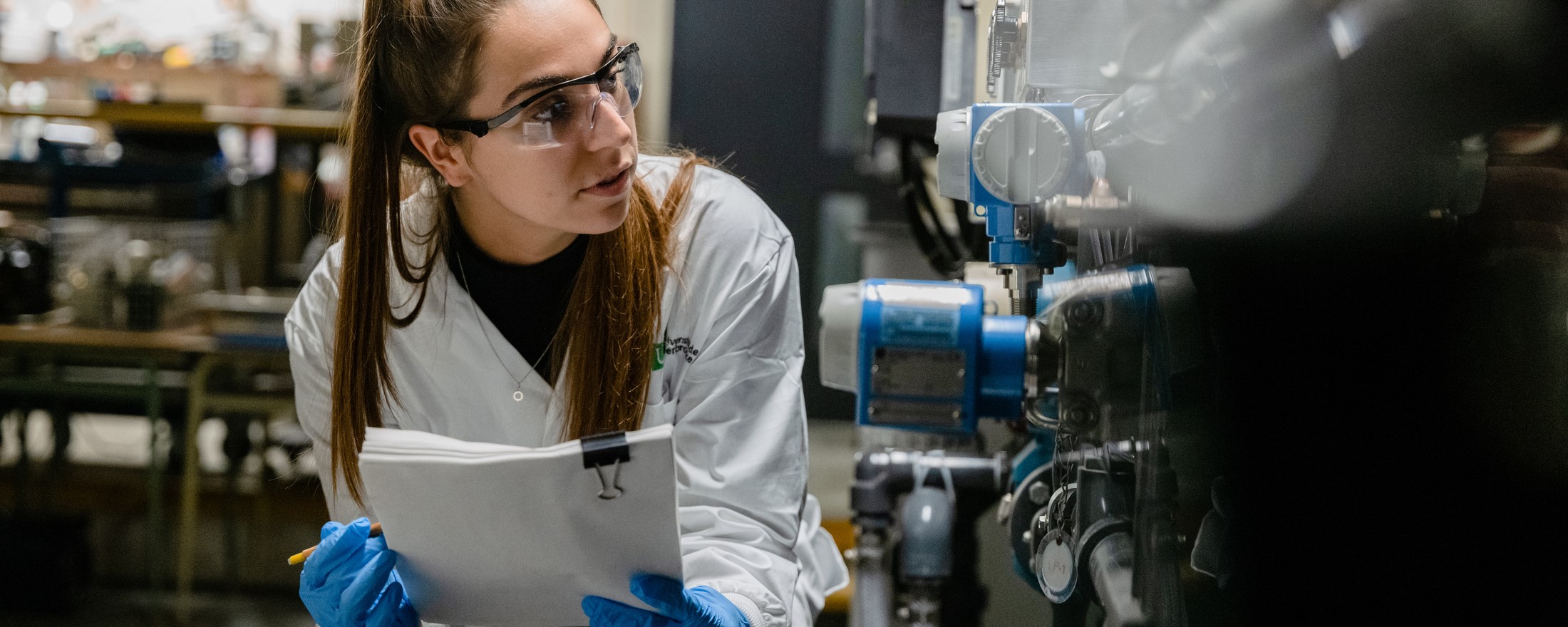(Industrial partnership - AEPONYX) Development of manufacturable processes for the fabrication of waveguide insulators
Overview
- RESEARCH DIRECTION
- Serge Ecoffey, Professeur sous octroi de recherche - Department of Electrical and Computer Engineering
- ADMINISTRATIVE UNIT(S)
-
Faculté de génie
Département de génie électrique et de génie informatique
Institut interdisciplinaire d'innovation technologique (3IT)
- LEVEL(S)
-
2e cycle
3e cycle
Stage postdoctoral - LOCATION(S)
-
3IT - Institut interdisciplinaire d'innovation technologique
C2MI - Centre de Collaboration MiQro Innovation
Project Description
Context: AEPONYX has developed a promising Integrated Waveguide Isolator (IWG) technology that has the potential to revolutionize the field of integrating isolators into high-performance photonic circuits (publication pending acceptance in Nature Photonics). The IWG technology forms an optical isolator structure that can operate without an external magnet or lens, thanks to the waveguides they carry. To date, there is no isolator technology that allows their direct integration into photonic chips, so that in most cases, it is done using an external fiber approach, thus limiting the compactness, portability, and cost of the devices. However, the IWG technology is still at the experimental stage, which prevents large-scale deployment. Fan-Out Wafer-Level Packaging (FOWLP) was developed several years ago for the integration of advanced microelectronic systems. This technology allows the assembly of a multitude of components into a monolithic wafer conducive to the microfabrication and integration processes of the microelectronics industry. Despite its strong potential and high level of maturity, FOWLP is still very rarely used for the integration of more heterogeneous systems such as MEMS or photonic circuits. The ability to produce IWGs in volume thus becomes a critical path in an effective commercialization strategy, and this is what leads to considering FOWLP as a necessary link in the industrialization of the manufacturing process. Objective: The project’s objective is to combine IWG, FOWLP, MEMS microfabrication, and advanced packaging technologies to develop a robust integration process compatible with an industrial production chain for large-scale IWG manufacturing. This extensive multidisciplinary integration project aims to engage several highly qualified individuals: postdoctoral (1), doctoral (2), and master’s (2) covering research areas ranging from physics and materials science to mechanical and electrical engineering, as well as photonics. The very nature of the device at the heart of this project is likely to generate innovations both in the fundamental science of optics and photonics and in applied research regarding the aspects of manufacturing and integration that deviate from what FOWLP paradigms advocate. The student researchers will be supported by the expert teams of AEPONYX, the Center for Collaboration and MiQro Innovation (C2MI), and the Interdisciplinary Institute for Technological Innovation (3IT). Work Environment: AEPONYX is an established leader in hybrid photonic integration with a portfolio of several products in the fields of telecommunications and data centers, with a growing involvement in the quantum field. As such, AEPONYX has developed cutting-edge expertise over the past seven years not only in integrated photonics but also in packaging, control electronics, and testing, which allows it to offer turnkey solutions from design to production. Well-established in Montreal and with offices at C2MI, AEPONYX innovates using solidly established and reliable technologies to bring robust solutions to the forefront of the market. The C2MI, Center for Collaboration and MiQro Innovation, is the largest R&D center in electronic systems in Canada and has infrastructure and several laboratories for the microfabrication of microelectronic systems on an industrial scale. This is complemented by the expertise and skills to develop and commercialize electronic systems and innovative prototypes essential to the digital revolution. Students will benefit from an exceptional research environment that combines academic and industrial partners working hand in hand to develop and commercialize the technologies of the future. The 3IT is a driver and showcase for the innovative practices of university and industrial research, socially and economically responsible. The 3IT.nano and 3IT.micro are technological platforms in nanofabrication/characterization and microelectronic packaging. They are part of the integrated innovation chain with the Quantum Institute (IQ) and the C2MI to develop proofs of concept that can be transferred to the C2MI for prototyping on industrial manufacturing lines. The 3IT platforms comprise more than $40 million in state-of-the-art microelectronic equipment. A team of 20 employees assists researchers, students, and industrial partners in their work and ensures the retention of know-how. Profiles Sought: • Specialization in materials engineering, physics, or electrical engineering • Assets: knowledge in microelectronics, packaging and microfabrication • Strong adaptability, autonomy, and problem-solving skills • A pronounced taste for design, experimental work, teamwork, and R&D • Fluent in French and/or English
Discipline(s) by sector
Sciences naturelles et génie
Génie électrique et génie électronique
Funding offered
Yes
Partner(s)
AEPONYX
The last update was on 24 July 2024. The University reserves the right to modify its projects without notice.
